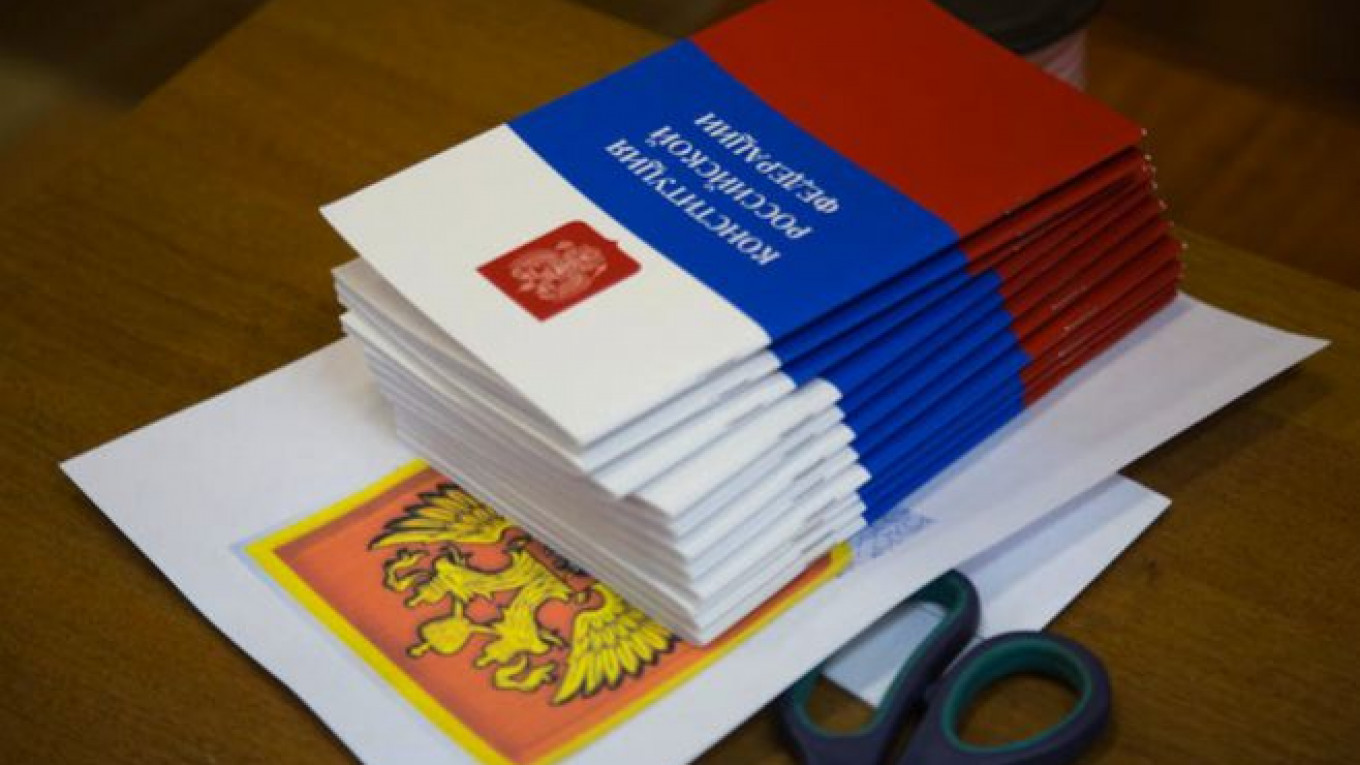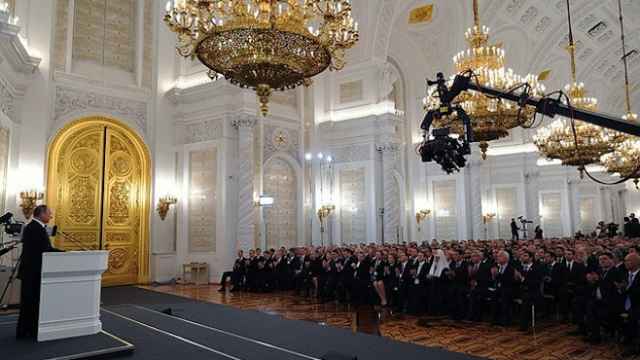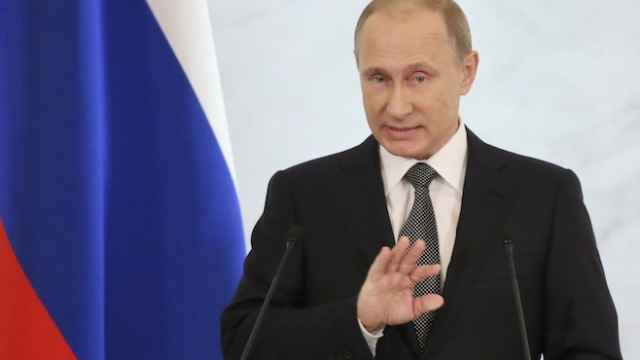Lawmakers have drafted amendments to the Constitution that would abolish a ban on the existence of an official state ideology in Russia, a news report said.
Russia has not had an official ideology since the collapse of the Soviet Union, and Article 13 of the country's Constitution reads that "no ideology may be established as the state or mandatory one." It also recognizes the existence of ideological diversity and a multi-party system.
But lawmakers Yevgeny Fyodorov from the ruling United Russia party and Sergei Katasonov from the Liberal Democratic Party have drafted amendments to the Constitution that would see Article 13 removed, the Slon.ru news site reported Wednesday.
"Today our Constitution prohibits any ideology — we believe this is wrong," Katasonov told Slon.ru. "The experience of other states shows that it is normal when a state ideology is officially established, based on patriotism and the protection of citizens."
Examples of states that have imposed a single ideology include the modern Islamic state of Saudi Arabia, which proclaims the Quran as its Constitution.
Katasonov was cited by Slon.ru as saying he had already signed the bill of constitutional amendments, which Fyodorov — who headed the project — would now submit to parliament.
According to the report, Katasonov did not specify when the bill would be submitted, and Fyodorov could not immediately be reached for comment.
The bill to abolish a ban on Russia having an official ideology was proposed by Fyodorov a year ago — before Moscow's annexation of Crimea from Ukraine led to a worsening in East-West relations, the Izvestia daily reported at the time.
When the idea was first raised, Mara Polyakova, a member of the presidential human rights council, warned that it could lead Russia back to Soviet practices telling Izvestia that she was "categorically against such a move."
"I am afraid that this would lead to a repetition of Article 6 in the last Soviet Constitution, which defined a one-party government and, therefore, a single ideology in the country … I hope that our state [instead] develops along a democratic way, which envisages respect for citizens' rights," she was cited as saying.
The Kremlin spokesman, Dmitry Peskov, said last year that President Vladimir Putin had no intention of changing the Constitution, Izvestia reported.
But signaling a change of tone amid increasing tensions with the West over Ukraine, Putin told the Valdai Club gathering in late October that Russia was seeking a "consolidation of society on the basis of civil values and patriotism."
And on Thursday, during his annual State of the Nation address, Putin urged Russians to rally around the state and take responsibility for its development, using abstractions such as "inclusion" and "unity" to emphasize his point.
Putin's approval ratings have soared since Russia's annexation of Crimea, and a handful of public figures who have spoken out against the government's policy on Ukraine have been denounced by politicians and pro-Kremlin activists as "traitors."
A Message from The Moscow Times:
Dear readers,
We are facing unprecedented challenges. Russia's Prosecutor General's Office has designated The Moscow Times as an "undesirable" organization, criminalizing our work and putting our staff at risk of prosecution. This follows our earlier unjust labeling as a "foreign agent."
These actions are direct attempts to silence independent journalism in Russia. The authorities claim our work "discredits the decisions of the Russian leadership." We see things differently: we strive to provide accurate, unbiased reporting on Russia.
We, the journalists of The Moscow Times, refuse to be silenced. But to continue our work, we need your help.
Your support, no matter how small, makes a world of difference. If you can, please support us monthly starting from just $2. It's quick to set up, and every contribution makes a significant impact.
By supporting The Moscow Times, you're defending open, independent journalism in the face of repression. Thank you for standing with us.
Remind me later.






